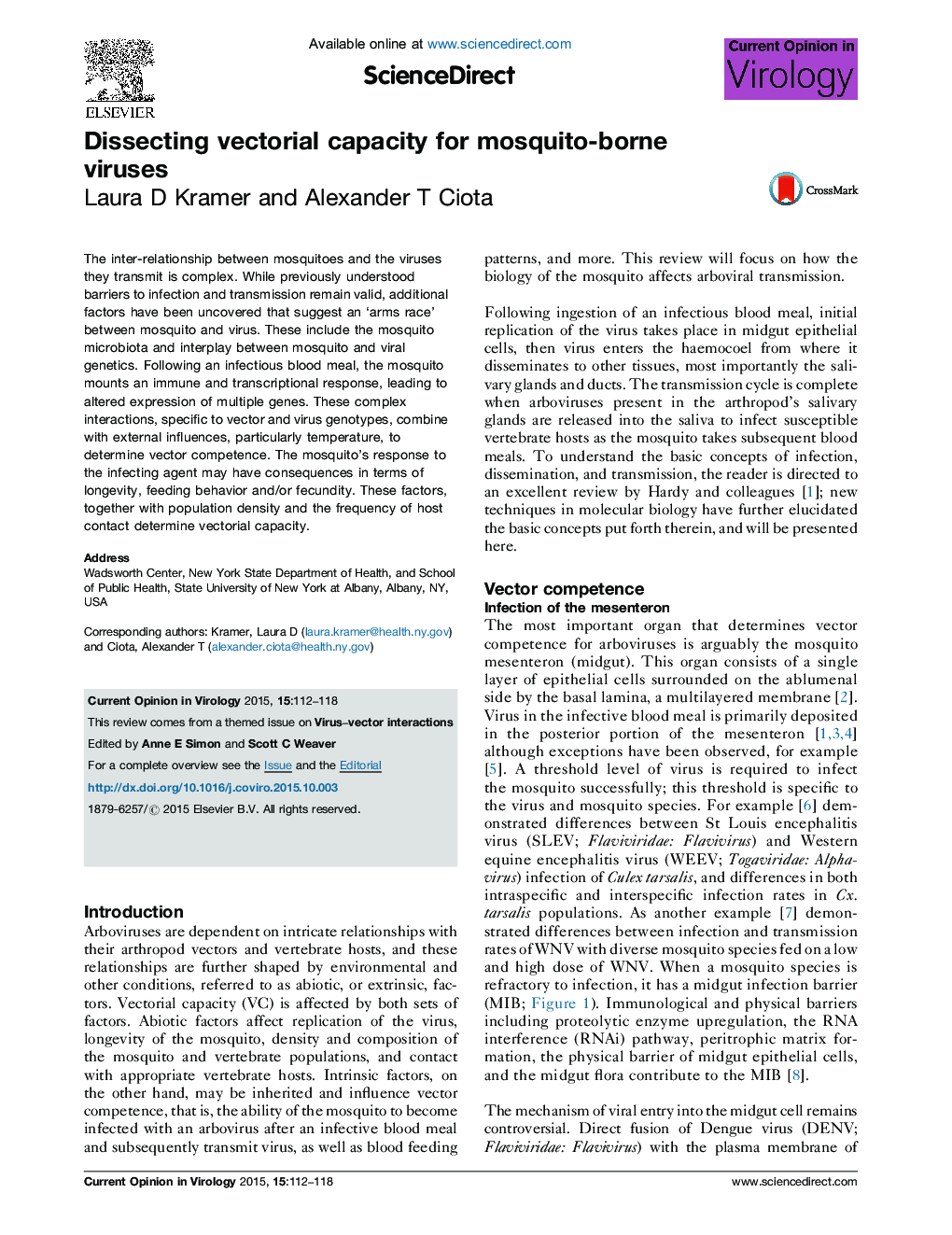| Article ID | Journal | Published Year | Pages | File Type |
|---|---|---|---|---|
| 2473204 | Current Opinion in Virology | 2015 | 7 Pages |
•Vectorial capacity determines the relative importance of a mosquito as a vector.•Vector competence is one component of vectorial capacity.•Interactions between mosquitoes and viruses are vector-specific and virus strain-specific.•Microbiota of the mosquito may impact vector competence.•There are costs to the mosquito with both infection and resistance to a virus.
The inter-relationship between mosquitoes and the viruses they transmit is complex. While previously understood barriers to infection and transmission remain valid, additional factors have been uncovered that suggest an ‘arms race’ between mosquito and virus. These include the mosquito microbiota and interplay between mosquito and viral genetics. Following an infectious blood meal, the mosquito mounts an immune and transcriptional response, leading to altered expression of multiple genes. These complex interactions, specific to vector and virus genotypes, combine with external influences, particularly temperature, to determine vector competence. The mosquito's response to the infecting agent may have consequences in terms of longevity, feeding behavior and/or fecundity. These factors, together with population density and the frequency of host contact determine vectorial capacity.
